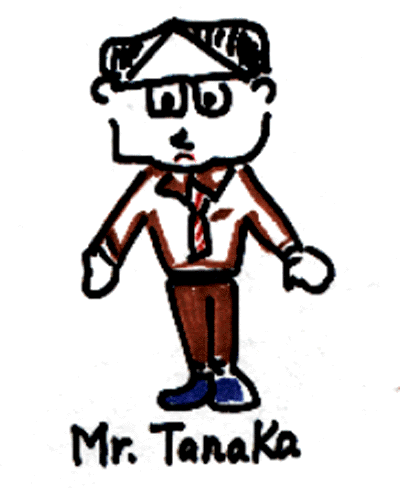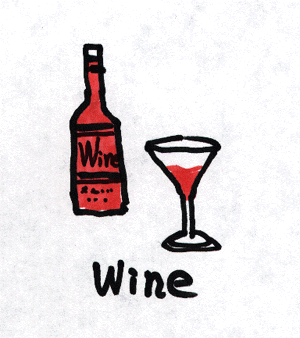 sushi-o tabemasu.
sushi-o tabemasu.
 shinbun-o yomimasu.
shinbun-o yomimasu.
 asagohan-o tsukurimasu.
asagohan-o tsukurimasu.
 gorufu-o shimasu.
gorufu-o shimasu.
 nihongo-o benkyooshimasu.
nihongo-o benkyooshimasu.


1.
We learned that the word order of Japanese is relative 'free'.
In English, the word order let us know which noun is the subject or
the object of a sentence
. By contrast, in Japanese, so-called
"particles" signal which noun is the subject/the object/etc.
of a sentence.
When you use the formal speech style, it's better to use
particles.
In this chapter, we introduce two particles:
Object Marker -O
Topic Marker
2. Object Marker -o
Identify the object of a sentence and attach -o
right after that object noun!
For instance, consider the following.
The italicized parts indicate the object nouns.
 sushi-o tabemasu.
sushi-o tabemasu.
 shinbun-o yomimasu.
shinbun-o yomimasu.
 asagohan-o tsukurimasu.
asagohan-o tsukurimasu.
 gorufu-o shimasu.
gorufu-o shimasu.
 nihongo-o benkyooshimasu.
nihongo-o benkyooshimasu.
 For instance, imagine the situation that you and your
friend have been talking about Mr. Tanaka.
For instance, imagine the situation that you and your
friend have been talking about Mr. Tanaka. Tanaka-san-wa, bangohan-o tsukurimasu.
Tanaka-san-wa, bangohan-o tsukurimasu.
 Tanaka-san-wa, tenisu-o shimasu.
Tanaka-san-wa, tenisu-o shimasu.
 Michiko-san-wa, eego-o benkyooshimasu.
Michiko-san-wa, eego-o benkyooshimasu.
 Next, the topic of your utterance is "this wine."
Next, the topic of your utterance is "this wine."
 Kono wain-wa oishii desu.
Kono wain-wa oishii desu.
 Kono wain-wa takai desu.
Kono wain-wa takai desu.









![]() OK! Let's go to
this drill!
OK! Let's go to
this drill!

![]()
![]()